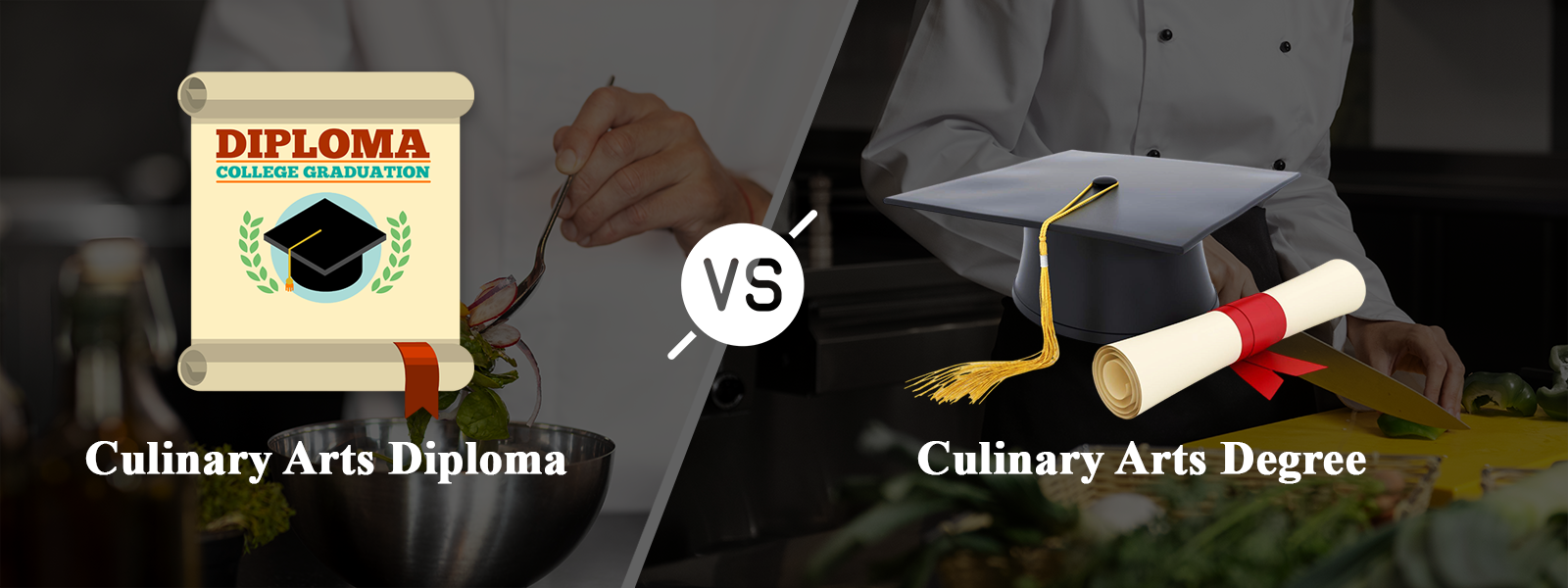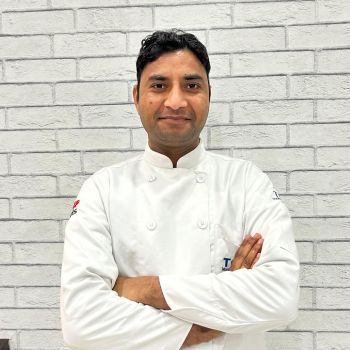

Dreaming of becoming a chef is no longer an unusual ambition; it’s a respected, rewarding, and creative career path. The world now celebrates chefs as artists, innovators, and entrepreneurs who influence global dining trends.
But when it comes to taking that first step into the professional kitchen, one question always pops up:
Should you pursue a Culinary Arts Diploma or a Degree?
Both options can lead you to a successful culinary career, but the journey, time, cost, and outcomes differ significantly. This guide dives deep into the Culinary Arts Diploma vs Degree debate to help aspiring chefs choose the perfect path based on goals, lifestyle, and learning preferences.
Pro Tip: If you want to step into a professional kitchen quickly, a Diploma in Culinary Arts in Delhi focuses on practical cooking skills and real-world experience.
Before deciding which path to take, it’s important to understand what each qualification truly offers.
A Culinary Arts Diploma is a skill-focused professional program designed to build core culinary techniques in a short period, usually 6 months to 2 years. It’s perfect for those who want to start working quickly and gain practical, hands-on experience in the kitchen.
A Culinary Arts Degree is a comprehensive academic program that combines cooking skills with theoretical learning, management, and research. Typically lasting 3–4 years, it covers everything from culinary science and food production to hospitality management and nutrition.
| Parameter | Culinary Arts Diploma | Culinary Arts Degree |
|---|---|---|
| Duration | 6 months to 2 years | 3 to 4 years |
| Learning Style | Hands-on practical training | A mix of theory, management, and practicals |
| Curriculum | Focused on culinary techniques | Includes culinary arts, management, nutrition, and research |
| Career Start | Quick entry into kitchens | Delayed but with wider career scope |
| Cost | More affordable | Higher tuition fees |
| Job Roles | Line cook, commis chef, pastry assistant, kitchen trainee | Chef de partie, sous chef, food consultant, restaurant manager |
| Ideal For | Students who want fast, skill-based employment | Students seeking global exposure and managerial roles |
Both programs teach the art and science of cooking, but the depth and approach differ.
A diploma focuses on execution and repetition, ensuring students master practical kitchen techniques before stepping into the real world.
A degree offers a broader perspective, combining culinary creativity with academic and managerial skills.
Pro Tip: A degree from one of the best culinary schools in India can help you build a strong foundation in food theory, global cuisines, and kitchen leadership.
Your career path depends on the qualification you choose, but both lead to exciting opportunities in the culinary world.
Most diploma graduates start early and grow through on-the-job experience. Within a few years, they can rise to positions like Chef de Partie or Sous Chef with consistent performance.
A degree equips you with both kitchen and management expertise, making you a fit for diverse global opportunities.
In the early stages, Diploma graduates often earn less because they start at trainee or assistant levels. However, they begin working earlier, gaining real-world experience sooner.
Degree holders, on the other hand, may start later but with higher-paying positions and faster promotions due to their advanced understanding of operations and leadership.
| Stage | Diploma Graduate (Avg Salary) | Degree Graduate (Avg Salary) |
|---|---|---|
| Entry-Level | ₹15,000 – ₹25,000/month | ₹25,000 – ₹35,000/month |
| Mid-Level (2–5 yrs) | ₹30,000 – ₹45,000/month | ₹40,000 – ₹60,000/month |
| Senior Level (5+ yrs) | ₹50,000 – ₹80,000/month | ₹70,000 – ₹1,20,000/month |
Ultimately, your skills, creativity, and consistency determine long-term growth, not just the qualification.
If you’re torn between the two, consider these factors before deciding:
Globally, a Culinary Degree is often recognized for higher-level opportunities in hotel chains, cruise lines, and international kitchens. However, Diplomas from reputed institutes with strong industry partnerships (like TEDCO, Le Cordon Bleu, or IHM) also hold significant value — especially when paired with international certifications or internships.
Many chefs even start with a Diploma and later upgrade to a Degree or specialized certification abroad. This flexible route balances cost, time, and career growth.
Most employers today prioritize skills, attitude, and hands-on experience over just paper qualifications. A degree might open the door faster, but it’s the quality of training and exposure that truly counts.
In short, employers look for competence, confidence, and consistency, not just credentials.
A smart approach many students take is starting with a Diploma to gain experience and then pursuing a Degree or advanced certification later.
For example:
Complete a Diploma in Culinary Arts → Gain 1–2 years of industry experience → Enroll in a Degree or specialized course in hospitality or pastry arts.
This laddered pathway gives you both practical skills and academic depth, ensuring career flexibility.
There’s no universal answer in the Culinary Arts Diploma vs Degree debate. Both paths can lead to success, it all depends on your goals and personality.
| Goal | Recommended Path |
|---|---|
| Quick entry into the job market | Culinary Diploma |
| In-depth education with management roles | Culinary Degree |
| Balanced approach (start small, grow big) | Diploma + Later Specialization |
| Desire for international opportunities | Culinary Degree or Diploma with global certification |
Whether you choose a Diploma or a Degree in Culinary Arts, remembe, both are just ingredients in your recipe for success. What truly matters is your passion, creativity, and perseverance inside the kitchen.
A diploma sharpens your hands.
A degree shapes your mind.
Together, they build a chef who can create, lead, and inspire.
So, take your time, assess your goals, and pick the program that best fits your vision. After all, in the culinary world, your journey matters as much as your dish.
A diploma focuses on hands-on cooking skills, while a degree covers culinary theory, management, and global cuisine studies.
A Diploma in Culinary Arts in Delhi prepares you faster for real kitchen experience, ideal for those eager to start working sooner.
A degree offers deep knowledge of food science, menu design, and hospitality management, giving graduates broader career opportunities.
Yes, both include extensive kitchen practice sessions, internships, and chef demonstrations to help students master real-world cooking environments.
Yes. Graduates from best culinary schools in India can easily work abroad with strong culinary fundamentals and global certifications.

Bakery & Pastry Specialist
Click one of our representatives below to chat on WhatsApp or send us an email to
info@tedcoeducation.com
Counselor
Bakery and Pastry Courses
Counselor
Culinary Arts Courses
Click one of our representatives below to chat on WhatsApp or send us an email to
info@tedcoeducation.com
Counselor
Bakery and Pastry Courses
Counselor
Culinary Arts Courses